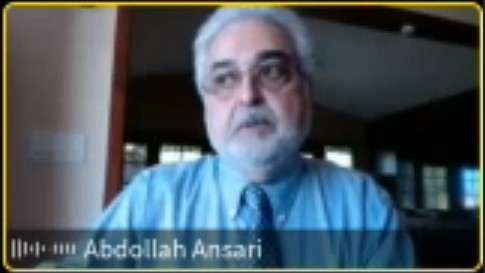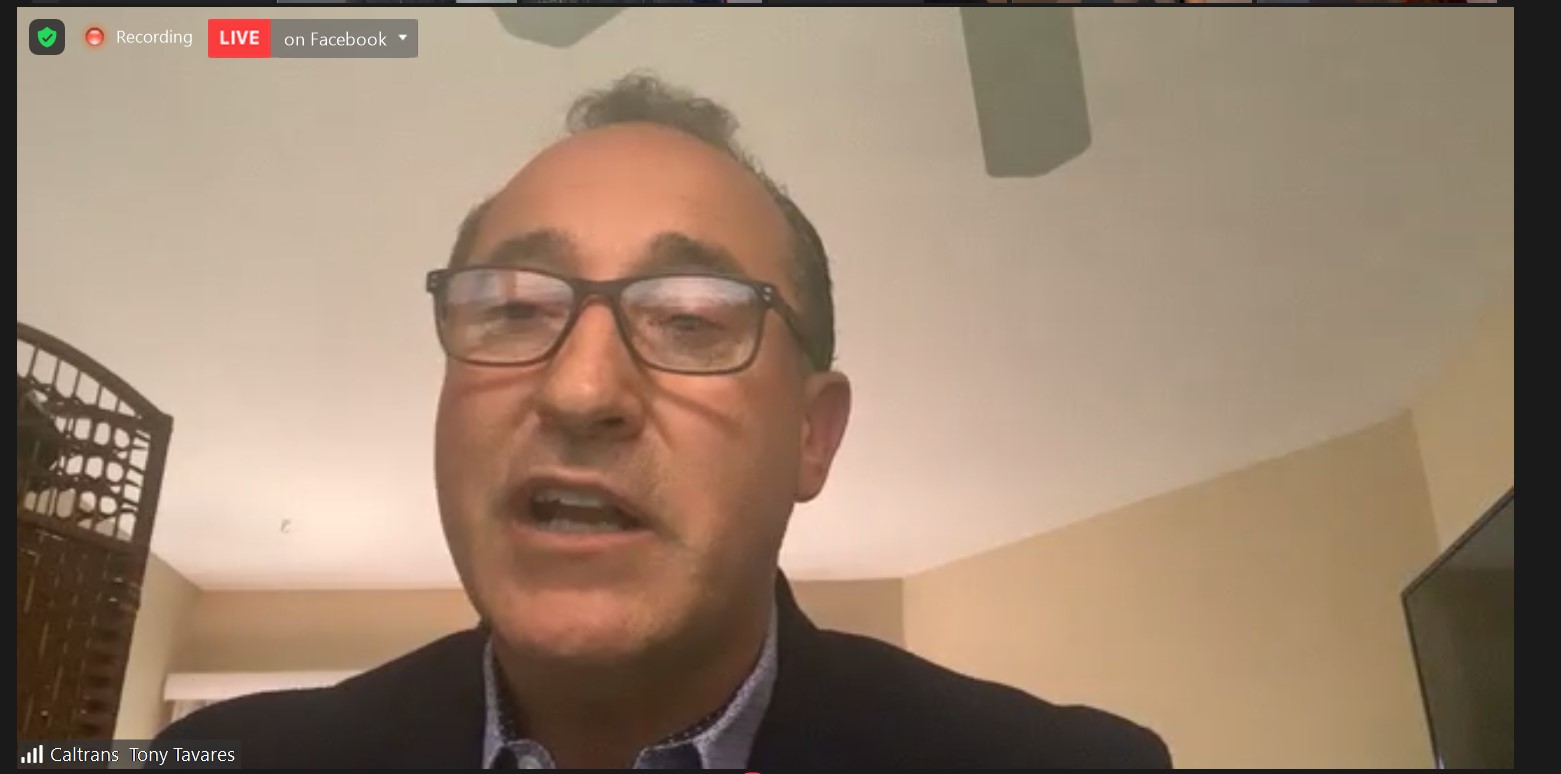Last night, speaking at a happy hour event hosted by Streets for All, Caltrans District 7 Director Tony Tavares told his side of the story of Caltrans pausing the widening of the lower 710 Freeway. Tavares' District 7 is responsible for Caltrans facilities - mostly freeways - throughout L.A. and Ventura Counties. Tavares' account makes it clear that the version of the story being told by Metro Highway Program chief Abdollah Ansari is not true.
Metro and Caltrans' $6 billion 710 Freeway widening project was essentially canceled when the federal Environmental Protection Agency mandated that it comply with the Clean Air Act. In early May, the statewide head of Caltrans, Toks Omishakin, announced that 710 widening would be put on hold. In late May, the Metro board suspended the project.

At the May Metro board meeting (starting at minute 6:02:50) Metro Senior Executive Officer Abdollah Ansari testified:
Caltrans director [Omishakin] made a position on not pursuing the [710 Freeway project] environmental document, but that was not coordinated with the district [Caltrans District 7] as far as we are aware of it. (emphasis added)
At the June Measure M Oversight committee meeting (starting at minute 1:25:15) Ansari repeated the assertion:
…while we were in negotiations with EPA - frankly getting close to an impasse - on signing off on 710 - Caltrans director [Omishakin] in headquarters - all of a sudden without the knowledge of the district [Caltrans District 7] or us announced that Caltrans is not going to sign off on the environmental document. (emphasis added)
(Note that Ansari's complaining about this amounts to insubordination. The statewide head of Caltrans does not need to coordinate or consult with a local Caltrans district - or with a single-county agency like Metro - to pause a freeway project. Caltrans' head can cancel a Metro freeway project. Metro staff can't cancel or override Caltrans decisions.)
Last night, Tavares praised Omishakin's role in leading Caltrans' shift from "very highway-centric" to "a 21st century transportation multi-modal organization." Tavares stated that he believes that Caltrans "should be engaging the communities and the stakeholders in determining how we maintain [and] operate and what we implement" on [Caltrans] roadways.
Streets for All founder Michael Schneider asked Tavares: (710 Freeway discussion starts at minute 27)
Abdollah Ansari said that Toks' [710 Freeway] statement - he [Ansari] made a statement last week that that sort of came out of the blue and it wasn't coordinated with your office. And with you. Was it coordinated with your office? Was that a shock to the system?
Tavares responded:
That was not a shock to the system. I don't know where Mr. Ansari came up with that comment. As our director mentioned, I've had numerous conversations and discussions and meetings with Director Omishakin, with our Secretary [David] Kim with the California State Transportation Agency, and other leaders, regarding that corridor. And we all agree, in its current form, it could not proceed. It could not proceed.
Ansari has been critical of the EPA ("holding a grudge"), of Caltrans, of public comment ("a lot of visionaries with one-minute cards".) But with the Metro board, the state, the federal government, corridor communities, and the L.A. Times all opposing the project, Ansari is becoming increasingly isolated and out of step with partners needed for it.
Asari would do well to start listening to the predominantly brown and Black low-income communities along the 710 corridor. The Coalition for Environmental Health and Justice (CEHAJ) has long urged that "Caltrans and Metro must start over and work with impacted corridor communities to develop a transformational and modern set of solutions that truly addresses the urgent need to improve local air quality, safeguards housing, businesses, and public spaces, and provides much needed career opportunities for corridor residents."
- - - - - - - - - - - - - - - - - -
Below is a full transcript of Director Tavares remarks regarding the 710 widening project, delivered at last night's talk (see video).
Tavares: Our director Toks Omishakin - he made a statement last month at our California Transportation Commission meeting regarding the 710 South project. I think that shows you, right there, the direction Caltrans is moving towards. The project, as he mentioned, in its current form is not necessarily supported by Caltrans. Our commitment is to go back and collaborate with L.A. Metro [and] all the stakeholders along that corridor to determine what should happen next.
I think we also understand that - because moving freight is still an essential component of California's economy - that the do-nothing alternative, if you will, is probably not a solution as well because air quality along that corridor is not the greatest. And it will only become worse.
And so what solutions can we put in place? What type of policies can we put in place - as far as - together with L.A. Metro and other transportation partners and stakeholders - to develop a framework moving forward on how we look at these projects, reimagine these projects? I would say in the past, capacity expansion or widening was probably the first choice that Caltrans jumped to. Now it will be probably our last choice that we would jump to. So we would look for other means and methods to address and find solutions before we would get to that point.
Schneider: You mentioned the 710 South. At Metro's last board meeting - where you sit as a non-voting member, I believe - they voted to suspend work on the 710 South, and the head of Metro's Highway Program, Abdollah Ansari, said that Toks' statement - with the project incompatible with [the direction] Caltrans [is taking the state] - he [Ansari] made a statement last week that that sort of came out of the blue, and it wasn't coordinated with your office and with you. Was it coordinated with your office? Was that a shock to the system?
Tavares: That was not a shock to the system. I don't know where Mr. Ansari came up with that comment. As our director mentioned, I've had numerous conversations and discussions and meetings with Director Omishakin, with our Secretary Kim with the California State Transportation Agency, and other leaders, regarding that corridor. And we all agree, in its current form, it could not proceed. It could not proceed.






